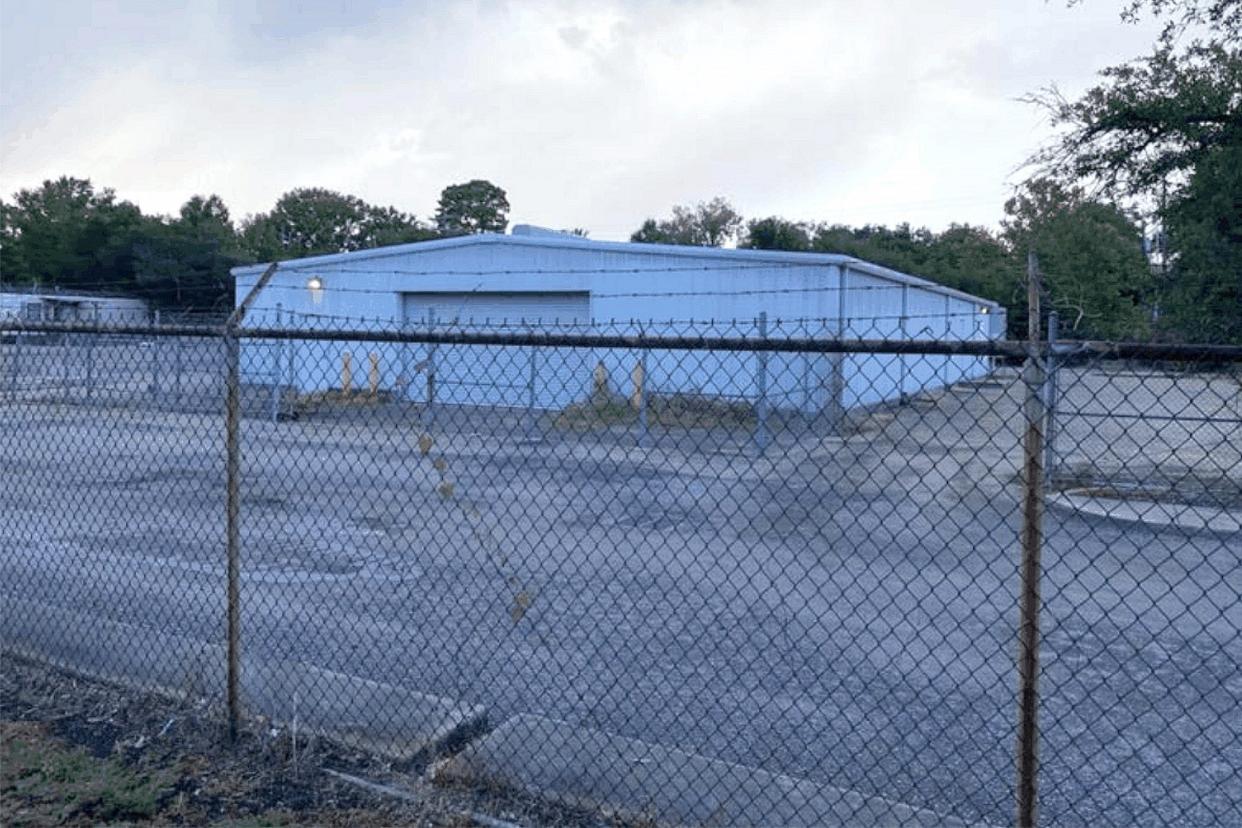In Louisiana, Police Reform Led Directly to a “Torture Warehouse”

This story was produced in partnership with the Garrison Project, an independent, nonpartisan organization addressing the crisis of mass incarceration and policing.
A new lawsuit filed in federal court last month alleges that the Baton Rouge Police Department ran a “torture warehouse” where members of its Street Crimes Unit strip searched, beat, and otherwise humiliated people and then released them, often without their being charged with a crime. Soon after the lawsuit was filed, the FBI opened a civil rights investigation into the allegations of misconduct at the now-shuttered warehouse known as “the BRAVE Cave.”
In late September, members of the Street Crimes Unit who used the BRAVE Cave were arrested on unrelated misconduct charges. BRPD Deputy Chief Troy Lawrence Sr. was placed on leave and then arrested and charged with malfeasance, principal to obstruction, principal to battery, and principal to theft. His son, Troy Lawrence Jr., who resigned in late August as the BRPD began the termination process against him, was also arrested and is at the center of the federal lawsuit. He allegedly took a 47-year-old grandmother to the BRAVEV Cave, where she was stripped, cavity searched, and “sexually humiliated.” Earlier this month, a federal judge overseeing a separate BRAVE Cave lawsuit ordered the Baton Rouge Police Department to preserve evidence related to the warehouse; attorneys for the plaintiff accused BRPD of “refusing to preserve evidence or even actively destroying video evidence.”
The Baton Rouge Police Department did not respond to multiple emails seeking comment.
The details of these abuses are not entirely new, as the country has seen horrifying revelations about off-books police interrogation warehouses in the past. But unlike other aggressive specialized policing units that have drawn national scrutiny, such as SCORPION in Memphis or Baltimore’s Gun Trace Task Force, Street Crimes has an unusual, perhaps unique origin: police reform. The lawsuit notes that Sgt. Lorenzo Coleman, the head of Street Crimes, serves as a consultant on police reform with police Chief Myron Daniels. “When not working for BRPD and operating a torture warehouse, the two men co-run a consulting agency called Armor Consulting Group, which offers workshops and trainings around the country on ‘police reform,’ ” according to the lawsuit. “Is it any surprise that top BRPD brass has consistently exonerated members of Street Crimes Unit accused of wrongdoing?”
More importantly, a full decade before the BRAVE Cave, Street Crimes was part of a community-oriented antiviolence effort involving faith-based, social service, and law enforcement organizations called Baton Rouge Area Violence Elimination (BRAVE). In 2012, Baton Rouge introduced BRAVE based in part on the “focused deterrence” model of crime reduction, which is highly popular with police reformers and often receives U.S. Department of Justice funding. Focused deterrence works from a purported “carrot and stick” model. Prosecutors and police identify people committing violent crime and offer them a choice during a “call-in”: accept the carrot of social services and stop committing crime, or face the stick of an indictment, often including RICO and conspiracy charges that criminalize a wide swath of people, or even entire neighborhoods. Focused deterrence often ends up leaning far more on the stick than the carrot, but it’s still held up as a system of police reform.
“From a community perspective, what we hear is that they see focused deterrence as just another ‘crackdown’ with a different name. The ‘carrot,’ from my understanding, is never really there,” said Charles Ransford, director of science and policy for the violence interruption program Cure Violence. “The way it has been is, ‘We’re going to get you. We’re going to come after your friends.’ I really don’t understand how everyone’s OK with that.”
BRAVE was enacted in the two Baton Rouge zip codes with the highest rates of violent crime and funded with $3 million in federal funds. By early 2014, law enforcement claimed that East Baton Rouge Parish’s 22 percent drop in homicides in 2013 was due in part to BRAVE. In 2017, however, BRAVE’s funding from the DOJ’s Office of Juvenile Justice and Delinquency Prevention was not extended because of concerns about East Baton Rouge Parish’s administration of the grant. BRAVE was over. But its specialized unit continued, and expanded their mission beyond the two initial zip codes.
“Street Crimes Unit started off as the BRAVE Team, the BRAVE Initiative,” said Troy Lawrence Jr. in a 2019 interview. “It stands for Baton Rouge Area Violence Elimination. When the name changed to Street Crimes Unit, our new focus was we were gonna patrol the entire city—every neighborhood, every square inch, every mile in Baton Rouge.” Lawrence also said that Street Crimes was “the aggressive side” of BRPD.
“The Street Crimes Unit is the direct descendant of BRAVE,” said Thomas Frampton, an attorney on the federal lawsuit, “and certainly the way that the Street Crimes Unit officers refer to their warehouse as the BRAVE Cave seems to support that inference.”
Frampton says BRPD’s Narcotics Unit used the warehouse as their “home base” before it was occupied by Street Crimes. The narcotics unit allegedly engaged in misconduct including unconstitutional searches, evidence planting, and stealing drugs. In the fall of 2021, after numerous scandals led to the dismissal of more than 100 cases, the Narcotics Unit was integrated into other units.
East Baton Rouge Parish District Attorney Hillar Moore said the arrests of Street Crimes members could impact hundreds of criminal cases, comparing the fallout from the revelations around the BRAVE Cave to those during the 2021 Narcotics Unit scandal. Frampton said that the fact that the BRAVE Cave sprung from police reform is “a frustrating irony and it makes you wonder about the capacity there is to reform these sorts of institutions without dismantling them altogether.”
“Chief Murphy Paul and his leadership team are reformers, and I say that not ironically, or even tongue-in-cheek,” Frampton said, “but also some of them are now arrested and facing felony charges of covering up instances of brutality.”

